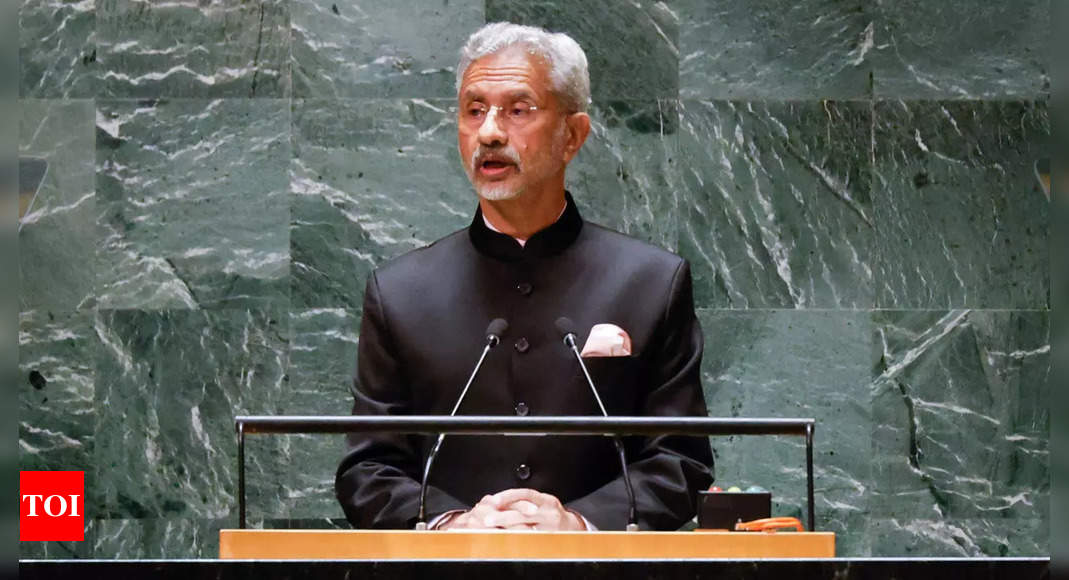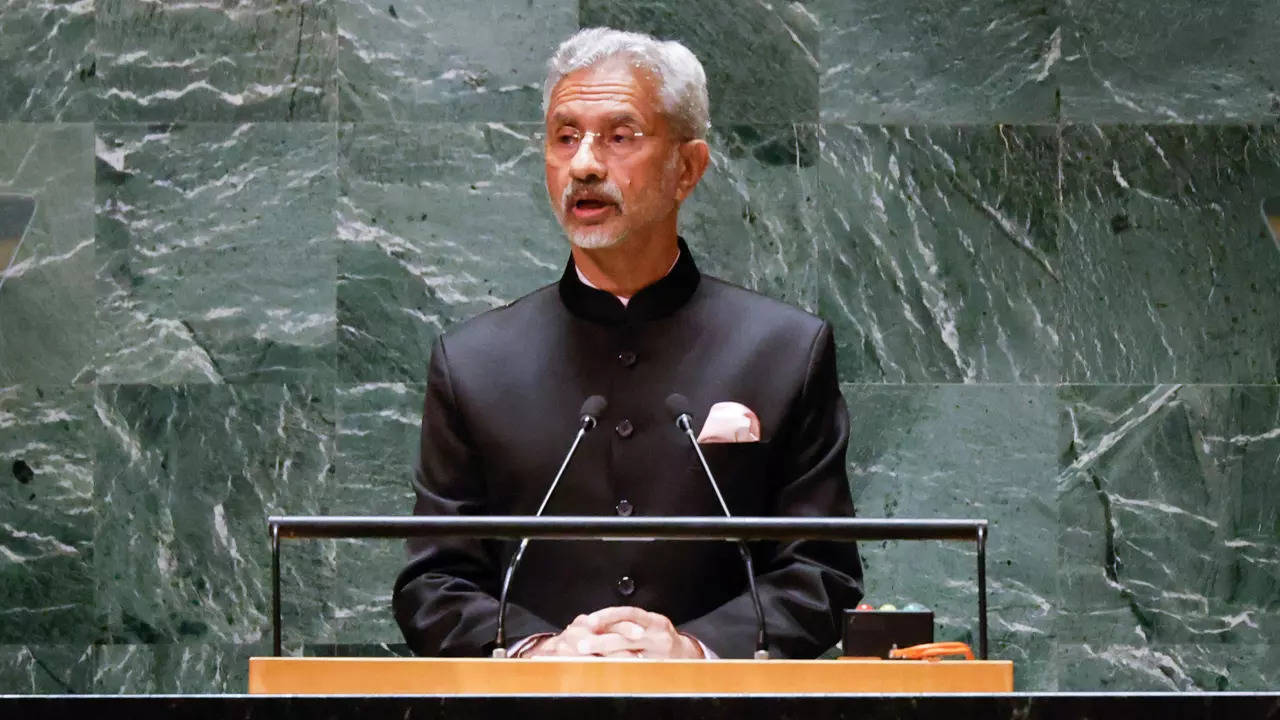[ad_1]
India’s top mandarin and minister, increasingly outspoken in recent months, did not directly refer to New Delhi’s spat with Ottawa and its patron US over the killing of a Canadian Sikh extremist, but he left no doubt about who and what he was referring to when he asserted that “respect for territorial integrity and non-interference in internal affairs cannot be exercises in cherry picking.”
Ottawa, primed by Washington, has alleged that New Delhi is behind the transnational assassination; India has rejected the charge and countered that Canada has provided a fertile ground for violent Khalistani extremists.
The spat has overshadowed India’s annual diplomatic skirmishes at the UN withPakistan and China.
Although his take-down applies as much to Beijing and Islamabad, Jaishankar’s cutting reference to “days when few nations set the agenda are over….rules will work only when they are applied equally to all,” reflected New Delhi’s increasing disquiet with Washington, which played a key role in prompting Canada’s unsubstantiated allegations.
In a broader critique of the global system, Jaishankar referred to frequent invocation by the US (without naming it) of a “rules based order and respect for the UN Charter. “But for all the talk, it is still a few nations who shape the agenda and seek to define the norms. This cannot go on indefinitely. Nor will it go unchallenged,” he asserted, arguing that changing it means “ensuring that rule makers do not subjugate rule takers.”
He identified “vaccine apartheid,” evasion of historial responsibilities on climate action, and using the power of markets to steer food and energy from the needy to the wealthy — all of which US stands accused of — among the injustices perpetrated by dominant nations.
At no point did Jaishankar name the United States, but the allusion, coming ahead of a sidebar trip to Washington DC later this week, when he is scheduled to meet his US counterpart Antony Blinken, was fairly obvious.
The minister, who has also served as India’s foreign secretary and ambassador to Washington, has deep personal and family ties in the US, but that has not prevented him from presenting an outspoken critique of the inequities in the global order still dominated by western elites.
“When reality departs from the rhetoric, we must have the courage to call it out,” Jaishankar told the UN in a sharp jab that sets the tone for his four-day engagement in the US capital during which he will also meet other senior members of the US Administration and US business leaders and think tanks. He will also be addressing the 4th World Culture Festival being organised by the Art of Living.
“As it is, structural inequities and uneven development have imposed burdens on the Global South. But stresses have been aggravated by the impact of the Covid-19 pandemic and the repercussions of ongoing conflicts, tensions and disputes. As a result, socio-economic gains of recent years have been rolled back,” Jaishankar said, while talking up India’s role in giving voice to marginalised nations, including the African Union which was drafted into the G20 as a permanent member at New Delhi initiative.
“This significant step in reform should inspire the United Nations, a much older organisation, to also make the Security Council contemporary,” Jaishankar said, implicitly renewing New Delhi’s bid for a permanent seat at the UNSC high table, clarifying, “When we aspire to be leading power, it’s not for self-aggrandisement but to take on greater responsibility, make contributions.”
Watch Jaishankar’s veiled dig at Canada in UNGA speech: Political convenience shouldn’t determine response to extremism, terror
[ad_2]
Source link


